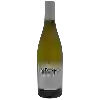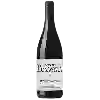
Château de PénaCôtes du Roussillon Villages Blanc
This wine generally goes well with vegetarian, poultry or lean fish.
Food and wine pairings with Côtes du Roussillon Villages Blanc
Pairings that work perfectly with Côtes du Roussillon Villages Blanc
Original food and wine pairings with Côtes du Roussillon Villages Blanc
The Côtes du Roussillon Villages Blanc of Château de Péna matches generally quite well with dishes of pasta, vegetarian or poultry such as recipes of lasagne with two salmons, cream and tuna quiche or traditional buckwheat pancake dough.
Details and technical informations about Château de Péna's Côtes du Roussillon Villages Blanc.
Discover the grape variety: Rondo
An interspecific cross between Zarya Severa (Sayanets Malengra x Amurensis) - a Russian variety - and Saint Laurent, obtained in 1964 by Vilem Kraus (Czech Republic) and then tested at the Geisenheim Research Institute (Germany). It can be found in Germany, Denmark, the Netherlands, Belgium, England, Ireland and Switzerland, but is virtually unknown in France.
Informations about the Château de Péna
The Château de Péna is one of of the world's great estates. It offers 38 wines for sale in the of Côtes du Roussillon Villages to come and discover on site or to buy online.
The wine region of Côtes du Roussillon Villages
The wine region of Côtes du Roussillon Villages is located in the region of Côtes du Roussillon of Languedoc-Roussillon of France. Wineries and vineyards like the Domaine du Clos des Fées or the Domaine de Rombeau produce mainly wines red, white and pink. The most planted grape varieties in the region of Côtes du Roussillon Villages are Mourvèdre, Lledoner pelut and Pinot noir, they are then used in wines in blends or as a single variety. On the nose of Côtes du Roussillon Villages often reveals types of flavors of cherry, anise or black plum and sometimes also flavors of citrus fruit, tree fruit or fennel.
The wine region of Languedoc-Roussillon
Languedoc (formerly Coteaux du Languedoc) is a key appellation used in the Languedoc-Roussillon wine region of southern France. It covers Dry table wines of all three colors (red, white and rosé) from the entire region, but leaves Sweet and Sparkling wines to other more specialized appellations. About 75% of all Languedoc wines are red, with the remaining 25% split roughly down the middle between whites and rosés. The appellation covers most of the Languedoc region and almost a third of all the vineyards in France.
The word of the wine: Oenologist
Specialist in wine-making techniques. It is a profession and not a passion: one can be an oenophile without being an oenologist (and the opposite too!). Formerly attached to the Faculty of Pharmacy, oenology studies have become independent and have their own university course. Learning to make wine requires a good chemical background but also, increasingly, a good knowledge of the plant. Some oenologists work in laboratories (analysis). Others, the consulting oenologists, work directly in the properties.











